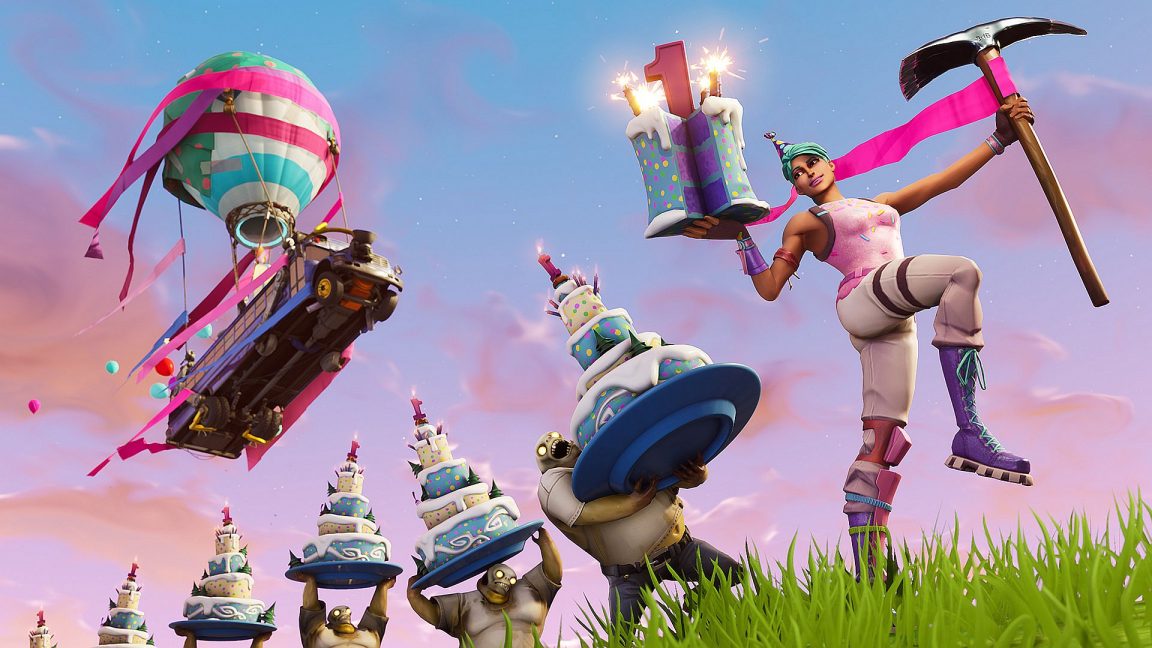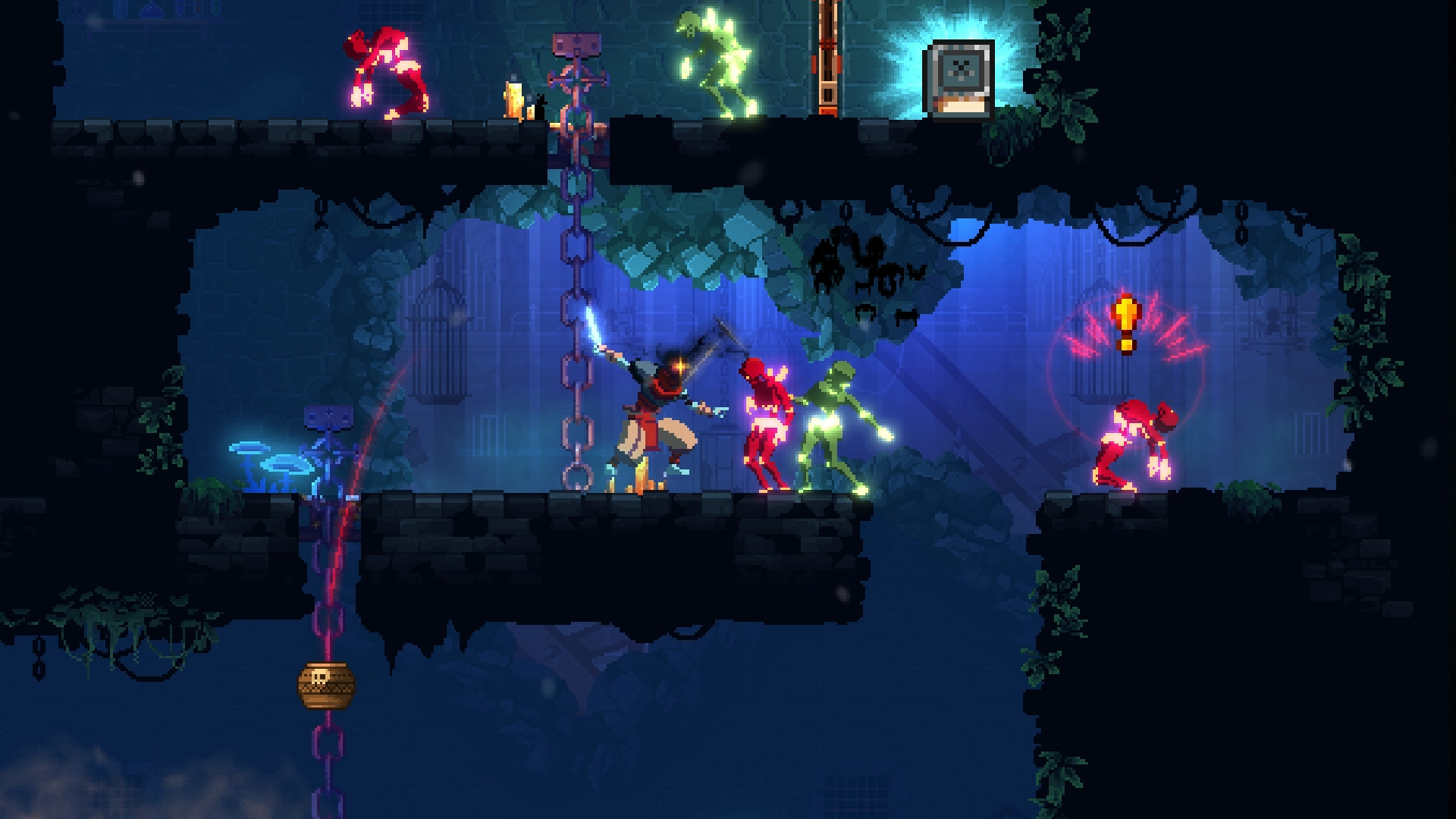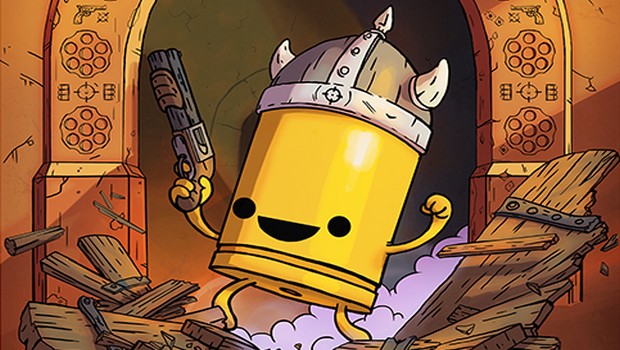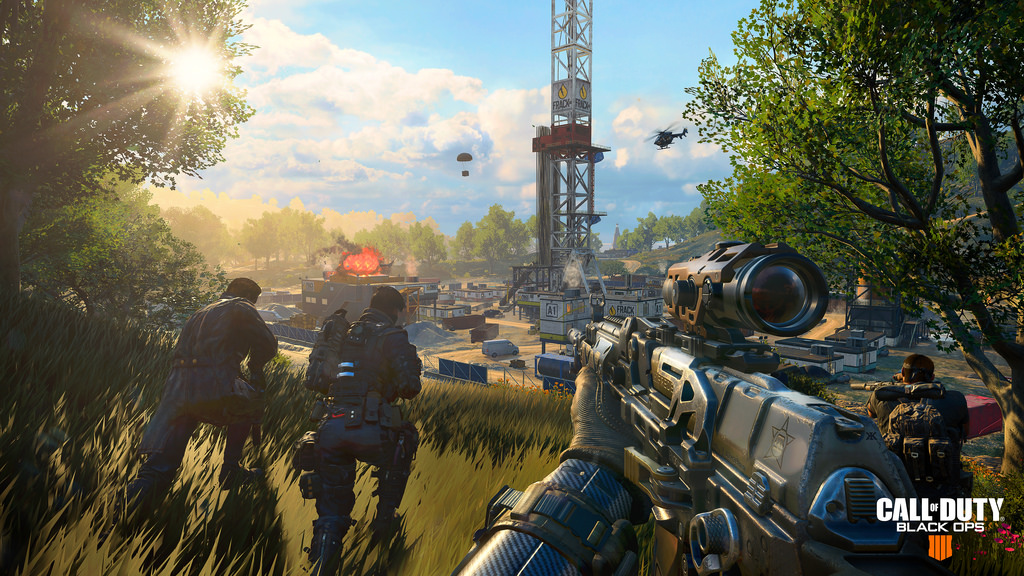
Humour me for a second here, dear reader – is Fortnite the most popular rogue-like in the world? Now, I know what you’re thinking.
“Fortnite, a rogue-like? No, it’s a Battle Royale game.”
“Fortnite? Isn’t that the thing which Blackout’s supposed to kill?”
“OMG, you still play that game? Destiny 2/Overwatch/PUBG is where it’s at!”
"Thus, I would like to posit that Fortnite is similar to a rogue-like if not the real deal. In fact, Battle Royale games share a lot more in common with the genre than we realize."
But Fortnite – or at least Fortnite: Battle Royale – can’t be a rogue-like, right? After all, rogue-likes are all about exploring a sequence of areas, which may or may not be procedurally generated, and gathering tools to make it to the end. The Binding of Isaac is all about navigating different sections, garnering more items and passives to beat the bosses and emerge victorious. Rogue Legacy is about exploring a massive castle, gathering upgrades and hoping your randomly rolled descendant can brave the final encounter. Dead Cells is about progressing through a castle with shifting rooms and tough bosses while picking up random weapons and creating an overpowered build to hopefully make it to the end.
Each of these games has their own unique hooks, whether it’s The Binding of Isaac’s sheer range of items and disturbing story; Dead Cells’ combat that belies its loot grinding and environmental story-telling; Rogue Legacy and its family tree of strangeness birthing weird new ways to experience the same slightly different rooms; and so on. They all have a few things in common though and those few things share more than a few similarities to something like, say, Fortnite: Battle Royale.
Firstly, death is the end of a run but not a permanent end. There’s usually some form of overarching progression that’s being tracked through multiple playthroughs.
Secondly, they’re all about rolling the dice and hoping that the odds play out in your favour. Maybe you won’t rack up a ton of negative passives. Maybe you’ll save up enough health to help out in tougher areas. Maybe you’ll discover the right weapon to compliment your awesome build. At the end of it all, victory can feel elusive but the sheer number of shifting factors combined with the satisfying gameplay keeps you coming back for more.
"Death, as it so happens, can come from anywhere at any time. You have a general idea of ways to stave off death but inevitably, you either complete the run or die."
Thus, I would like to posit that Fortnite is similar to a rogue-like if not the real deal. In fact, Battle Royale games share a lot more in common with the genre than we realize. While the map is relatively static throughout a single season, you can choose where to drop. The drop location is influenced by a number of random factors, namely the number of people who dropped with you, their skill levels, the loot present at the location, how that plays into what you’re comfortable with, the materials you can scrounge up and the overall positioning of your foes.
Throughout the course of a match or “run”, you’re constantly trying to preserve your health. However, it’s also being augmented thanks to items like Shield Potions and Slurp Juice. Over time, you may come across higher tier weapons by either getting lucky with loot drops or defeating more skilled opponents. Either way, there’s a constant sense of danger in these encounters and a randomness to the rewards. Another element of environmental danger exists with the storm constantly closing in on you…which isn’t all that different from the number of environmental hazards in a typical Dead Cells run. However, a rogue-like such as Enter the Gungeon, Dead Cells, The Binding of Isaac and so on also share this common theme of not being able to go back to previous levels until a run is over.
Death, as it so happens, can come from anywhere at any time. You have a general idea of ways to stave off death but inevitably, you either complete the run or die. The only option then is to start over, rolling the dice again and hopefully getting lucky. There’s an overall sense of progression as you level up and unlock new items.
Obviously, Fortnite: Battle Royale – and most Battle Royale titles in general – diverge significantly from rogue-likes in a number of ways. Fortnite is a third person shooter with building elements and as such, luck can play as big of a part as gun skill in many cases like the skill level of opponents, weapon pick-ups, and so on. The map, though changing significantly with each season, has huge portions which remain the same for a long time. You’re not going through a new procedurally generated map with each playthrough. Finally, though there is long-term progression courtesy of the leveling system and seasonal Battle Passes, the rewards are cosmetic and have next-to-no influence on gameplay.
"Of course, the most obvious difference is that rogue-likes tend to be single-player. At most, you could be competing for the fastest run and gaining items which offer a significant power advantage."
However, is the leveling system all that different from a rogue-like? Inside of a match, you’re (usually) becoming stronger whether it’s through killing other players with better loot or discovering some for yourself. As for the Battle Pass, is it really all that different from the unlocks in a rogue-like? The main difference here is that in Dead Cells, the items unlocked offer a gameplay advantage whereas in Fortnite: Battle Royale, they’re cosmetic.
In some way, those cosmetics are a badge of honour, telling me how many deaths I’ve suffered or many enemies have been slain to achieve these rewards. It tells of the horrors I endured to earn it and my time invested in the game, much like the number of deaths or weapon unlocks that a typical rogue-like would dole out. At the end of the day, Dead Cells will unlock different items for me to discover depending on how I approach a run – if I hoard Cells and pour them all into blueprints, then the weapon selection is higher but if I save Cells and use them for upgrading weapon rarity tiers, I increase the chances of better quality loot in future runs. This doesn’t sound too different from partaking in various Battle Pass challenges, altering the way I play (if only slightly), to make progress.
Of course, the most obvious difference is that rogue-likes tend to be single-player. At most, you could be competing for the fastest run and gaining items which offer a significant power advantage. Fortnite: Battle Royale is a competitive multiplayer game and you’re competing to deny power advantages as much as manipulate the environment and outsmart foes to win.
There are similarities between the two genres – that can’t be denied. It’s something worth being skeptical about but is it really all that weird to see the influence of rogue-likes on other genres? What is Thumper if not a game about achieving the perfect run? Dark Souls is all about losing your Souls and having to respawn with a clean slate, though it’s a bit more relaxed since you can retrieve those Souls and keep whatever equipment, upgrades, map progress and so on that’s been been unlocked. Hollow Knight features a few elements and even handicaps you if you don’t retrieve your “Soul”, providing less Soul Energy to utilize.
"Once again however, rogue-likes can be considered the same. Even if they’re not multiplayer like a Battle Royale title, they’re not typical single-player games with a properly laid out story either."
Whichever way you look at it, it is somewhat surprising that Battle Royale titles have achieved this level of replayability. Even if the esports scene for Fortnite: Battle Royale and Call of Duty: Black Ops 4’s Blackout are making headway, the games themselves don’t lend to typical competitive tournament standards. Story-telling gleaned from Fortnite: Battle Royale is mostly environmental and evolving, inciting discussion in the community (which isn’t too different from how the lore in rogue-likes can spark discussions). But these aren’t traditional stories that you’ll keep coming back to. They’re rollercoasters and you’re essentially part of the big long ride. It’s not something that non-rollercoaster riders would really be able to understand.
Finally, for all the “rewards” earned from a Battle Pass, the matches themselves function on a different economy of earning upgrades as they progress. Compare this to other competitive shooters where your best gear and unlocks are available from the get-go. None of this is to demean the Battle Royale genre, by the way. It’s only to point out that by most traditional single-player and competitive multiplayer standards, a game like Fortnite: Battle Royale and even Call of Duty: Black Ops 4 shouldn’t have this level of replayability. But alas they do and it’s something you’re either a part of and understand or you don’t (which itself is an oversimplification since both titles feed into the demand for games-as-a-service titles with longer-term investment).
Once again however, rogue-likes can be considered the same. Even if they’re not multiplayer like a Battle Royale title, they’re not typical single-player games with a properly laid out story either. The only real competitive aspect of a rogue-like is the speed-running aspect. And once again, despite the meta progression, an actual run sees all progress and upgrades lost when the player dies. Whether it’s taking less time to die or more, the ultimate goal of victory through survival or pure skill is in both types of genres.
Regardless, I think that the hardcore nature of a rogue-like, the desire to understand and learn more about the systems, earning some degree of mastery with the more time invested is what keeps people coming back. I also believe that Battle Royale games recognize this and, despite all the randomness and how much is taken out of the player’s hands by the influence of other players, harness that same degree of mastery to hook a larger player base.
"It may seem impossible to compare these types of games but different systems are influencing different genres all the time. How developers utilize these systems and iterate on the to cater to their respective audiences is the real key."
With Fortnite: Battle Royale constantly adding new items, new map sections and new mechanics, it keeps players coming back, eager to learn the new interactions and how to master them. Which again, isn’t all that different from a whole bunch of new rooms, items and buffs that are added to rogue-likes like Enter the Gungeon and The Binding of Isaac.
If nothing else, the common factors between both genres only highlights how certain gameplay aspects can be repurposed for different purposes. It was already intriguing to see titles like Dead Cells and Rouge Legacy incorporate aspects of the Metroidvania genre into their gameplay. Seeing Fortnite: Battle Royale and Call of Duty: Black Ops 4 having their own systems of meta progression, especially the latter which is bringing that seasonal approach to multiplayer and Zombies as well, is exciting in its own way (even if the Battle Pass was originally a Dota 2 system. Things would probably come full circle if someone managed to combine the Battle Royale and rogue-like genres and that would be a spectacle in its own right.
It may seem impossible to compare these types of games but different systems are influencing different genres all the time. How developers utilize these systems and iterate on the to cater to their respective audiences is the real key. It’s easier said than done for sure, and not everyone will get it right on the first, second or tenth try. But like the rogue-likes and Battle Royale titles that we sink so much time into, it can inevitably lead to victory for all involved.
Note: The views expressed in this article are those of the author and do not necessarily represent the views of, and should not be attributed to, GamingBolt as an organization.



















